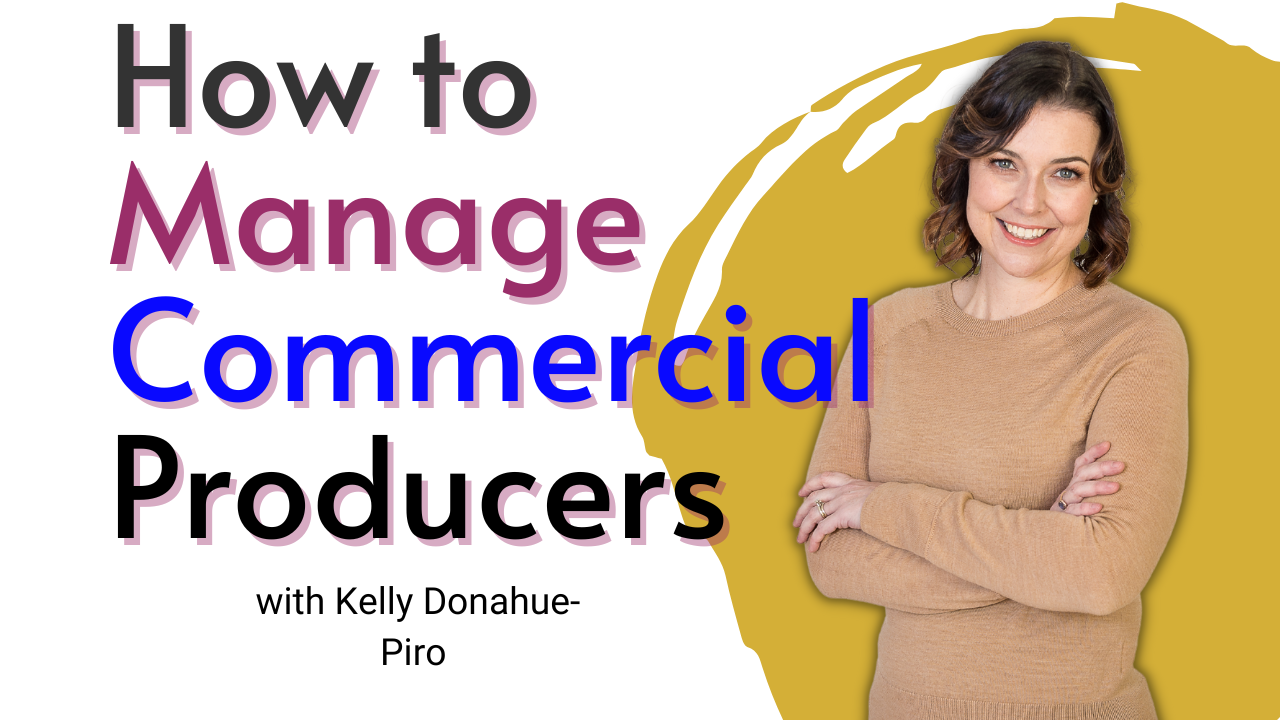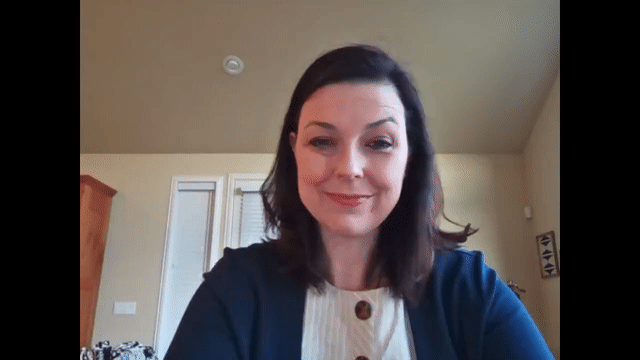Introduction
Do you want to grow your agency? Of course you do! Let me introduce you to the Commercial Insurance Producer. They’re a great resource and asset to grow your agency.
However, many insurance agencies fail at finding, training and managing commercial insurance producers. The key to having successful insurance producers is to have a clear plan for managing and accountability of their sales activities.
Before we dive into the nuts and bolts of managing commercial insurance producers, allow us to update you on what’s been going on at APP.
Agency Performance Partners Update
Travels From 5.26.22 – 7.1.22
Launched Agency Efficiency 2.0 with the Widener Team in Johnson City, TN!

- 17,033 Inbox E-Mails to 3!
- 91 Overdue Tasks to 5 Overdue Tasks
- No client information in notebooks
- Office Cleaned
- Time blocks earned!
- On to quoting over the phone, follow up and winning your day!
Travels for this week: 7.5.22-7.8.22
- Kelly: Skaneateles, NY-Agency Efficiency Launch!
- Heath: Oklahoma City, OK-Agency Assessment
Agency Win: Agency in Bellefontaine, OH got their emails down 95% from our AppX Time Management Launch.
Professional Goal Update: On track with 18% growth!
Personal Goal Update: Failed a progress pic for #75Hard to start over again
Newest Obsession: Athleta Sunrise Sweatshirt: it’s perfect in air conditioning and comes in a ton of colors!
Lesson of the Month: Sometimes, team members will learn lessons the hard way. As a leader, it can be hard to watch. People have repeat patterns! In order to break the cycle, sometimes they’ll learn tough lessons on their own and on their terms. When there are repeat patterns, it’s important to have the team member break the cycle to not want to repeat it!
Here’s an example. If a team member goes through cycles of being backlogged, you can try to:
- Relieve some of their workload especially if they’re spiraling or
- Let them drown for a bit and make it a teachable moment.
How to Manage Commercial Insurance Producers
How Will You Implement an Accountability Plan?
The truth is most producers get comfortable. They need a consistent stream of motivation, competition and goals so they can achieve. In many agencies, the owner is also the sales manager. When running an insurance agency, sometimes the commercial producers get a bit neglected, sales fall off and everyone is left frustrated.
This is why we created this comprehensive guide. This contains actionable items to managing commercial insurance producers that any agency can use right away and right now.
Here you’ll learn the essential strategies to manage your commercial producers. Let’s dive in.
- Setting specific and achievable goals (key activities to increase insurance sales)
- Tracking your goals
- Conducting a sales meeting
- Holding monthly coaching sessions
- Addressing underperforming insurance producers
- Sales Training
Listen to KDP give you the dish on the 6 Top Insurance Sales Management Takeaways!
Types of Insurance Commercial Producers
Not all commercial insurance producers are created equal. In fact, there are several different types of insurance producers with different skill sets that can help your independent insurance agency grow. Depending on your market and goals you may have all or some of these types of insurance producers at your agency. Therefore, when looking to add new sales team members, consider diversifying the types of producers you hire.
- Outside Producer: They’re a true hunter. They’re rarely in the office and are often at networking meetings, client appointments or just dropping by to get new opportunities. Their super power is generating opportunities.
- Inside Producer: This is a newer sales role. With the advent of content marketing, agencies can generate inbound opportunities. This type of producer can also work lists and make outbound calls to develop opportunities. As a result of generating marketing leads, inside insurance producers are available when the phone rings.
- Niche Specialist: This is a hybrid of an outside and inside producer. This insurance producer generally focuses on 1-2 industries and is very active within those industries. They produce content, videos and industry meetings. Due to their specialization they’re well known so their phone rings with great quality opportunities around one niche industry.
- Non-Producing Producer: This may be a producer who’s at the end of their career. They have a book, they’re comfortable and generally only take referrals. This can frustrate agency ownership since growth is a necessity to the agency but not a priority for the producer. These producers are nurturing current relationships and aren’t interested in expanding.
Each of these types of producers can add value to your insurance agency. With the right type of leadership and management, all can be profitable and help your business grow.
Setting Achievable Insurance Sales Goals
The first step to managing commercial insurance producers is to have clear insurance sales goals. We recommend insurance agencies focus on both activity-based goals as well as production goals. Many insurance agencies struggle with setting goals because they want something attainable but also a stretch for added incentive. For this reason, many times sales leaders pick a random goal without too much data behind it.
For the client’s of Agency Performance Partners we recommend you set the following goals for your team:
- Individual sales goal based on revenue not premium
- Fee goal: this can be a great way to get a new producer to be profitable faster
- Team Goal
- Activity Goals which may include the following:
- Insurance expiration dates gathered
- Calls Made
- Initial appointments held
- Submissions
- Number of networking events attended
- Number of business cards handed out
For the activity goal, we recommend that you change that up every month or quarter to keep the insurance sales team curious and interested.
How To Set Revenue Goals For the Commercial Sales Team
Note, this section includes examples to help you visualize how to set sales goals. These are not the recommended sales goals from APP but real life examples. Every agency, team and market has variables. If you feel these goals are too small or too big, you’re right! We customize for agency clients we work with so it’s right for you.
For many agencies, they’d like us to tell them what goal to give a new producer. In our experience, we’ve seen everything from tiny sales goals to overly ambitious goals. The reality is, it depends on a few factors:
- Experience of the insurance agent: Someone green in the insurance business should have smaller sales goals to start. However, upon hiring the team member, there should be clearly written goals for the first 3 years they’re with the agency. We shouldn’t leave it to chance on how they perform.
- Type of Commercial insurance client: There will be different sales goals depending on if you’re hunting whales or fishing in a pond. The expectations are different.
- Type of Producer: An inbound producer will typically focus on smaller accounts that don’t need an onsite visit. For this reason, their goals are typically different.
Commercial Insurance Producer Revenue Goals
For the clients of Agency Performance Partners, we start with what your insurance agency needs. Math and numbers don’t have feelings, so starting a plan based on numbers will tell us what your insurance agency needs and is more appropriate than picking a number out of a hat. Leave the magic tricks for your kid’s next birthday party!
In order to uncover the goal, we start with your agency’s metrics:
- Current Commercial Revenue
- Current Retention
- Average Rate Increase
- Target Growth Rate
Once you get these numbers you can create your growth calculator.
| Premium | Revenue | Commission Rate | |
| Current | $15,299,205.00 | $1,898,663.00 | 12.41% |
| Retention | 94.77% | 94.77% | |
| Retained Premium | $14,499,056.58 | $1,799,362.93 | |
| Rate Increase % | 3.00% | 3.00% | |
| Rate Increase | $14,934,028.28 | $1,853,343.81 | |
| Target Growth Rate | 8.00% | 8.00% | |
| Target End of Year | $16,523,141.40 | $2,050,556.04 | |
| Difference to Grow | $1,589,113.12 | $151,893.04 |
As you can see for this agency, they need to write $1,589,113 in premium, or $151,893 in revenue for the year, to hit their 8% growth target. Every insurance agency is different. We recommend you initiate using conservative numbers to create your goals.
From here you know (not think) what has to happen for the department to hit its growth goal. When you know and understand the numbers, if retention drops you can re-adjust. Alternatively, if new business is on fire, you know you’ll grow at a higher rate than the target 8%. This allows you to predict your next hire and be prepared for how to run your business.
The next step is to identify what percentage of the goal each team member is responsible for. If you’re like many independent agencies, you may have a mix of outside, inside, new producers and sunsetting producers.
We recommend that you pull last year’s production for each team member no matter what type of producer they are. Here’s an example:
| Sales Team | Contribution to Goal | Last Year Sales Premium | Last Year Sales Revenue |
| Outside Producer | 49% | $500,000.00 | $62,050.00 |
| Inside Producer | 32% | $325,000.00 | $40,332.50 |
| Service Team Sales | 15% | $150,000.00 | $18,615.00 |
| Non-Producing Producer | 5% | $50,000.00 | $6,205.00 |
| New Producer A | 0% | $0.00 | $0.00 |
| Total | 100% | $1,025,000.00 | $127,202.50 |
You can see here that the New Producer wasn’t on the team last year, so last year’s revenue doesn’t include the new team member’s production. With this in mind and based on the previous table, we know you want to grow at 8%.
You can easily apply an 8% growth calculation to this table:
| Sales Team | Contribution to Goal | Last Year Sales Premium | Last Year Sales Revenue | 8% Growth Goal |
| Outside Producer | 49% | $500,000.00 | $62,050.00 | $67,014.00 |
| Inside Producer | 32% | $325,000.00 | $40,332.50 | $43,559.10 |
| Service Team Sales | 15% | $150,000.00 | $18,615.00 | $20,104.20 |
| Non-Producing Producer | 5% | $50,000.00 | $6,205.00 | $6,701.40 |
| New Producer A | 0% | $0.00 | $0.00 | $0.00 |
| Total | 100% | $1,025,000.00 | $127,202.50 | $137,378.70 |
If you’re struggling with how to set goals, we have something special for you!
Sales goals are established for the existing team. The next step is to create a sales goal for the new team member. This will be varied based on their experience, tools and type of producer. Based on the growth goals established in the first table, they need to generate at least $14,515 in revenue to ensure hitting the $151,893 revenue growth goal. Note, you’ll still be losing money in the Producer’s first year!
If you have a new team member, they should contribute to the overall goal. However, we recommend that you cautiously anticipate that they may not hit the agency sales growth goal. If they don’t and they’re not a fit, you’ll want to move on.
Click here to read our article on how to fire a team member.
Additionally, the sales goals for the new team member should increase every quarter and clearly be outlined before they start. This is how you’ll track their success with the agency.
In the above scenario, for your agency to hit 8% growth, the New Producer would strive to sell $14,515 in revenue. At a 12.14% commission rate, that’s $117,056 in premium or $9,754 per month. This is a realistic goal for the New Producer and doesn’t hinder the agency’s growth goals by relying heavily on the new team member.
If your agency needs help with how to set goals (for every single role in your agency) we have an agency template that will walk you through goal setting!
Setting Agency Fee Goals
At Agency Performance Partners, we encourage agencies to charge fees especially on lower level policies or for insureds who have high service expectations. You’ll want to align your agency around those objectives. In addition, fees can be a great way to fund and fuel a new producer. While each state is different with this protocol, we recommend that you select a fee goal to achieve new growth.
Words from Don Polczynski, Agency CFO
Sales management is an industry topic that comes up time and time again. Small agencies, typically under $5mil revenue, need growth to stay viable and compete with the larger players. If they can find the seemingly secret magic recipe for sales management, these agencies may just be able to level some of the playing field.
In reality, the magic recipe for sales management may not be a secret at all. One of the key distinctions between larger agencies and smaller agencies is in their approach to sales management. The large agencies undertake detailed sales planning for each producer – both during the onboarding process and then annually. Usually, this planning is done in conjunction with a sales pipeline tool.
It works because large agencies realize sales is a numbers game. New business production can be predicted by just a couple simple numeric formulas. Results are monitored and accountability is put in place. These formulas become the foundation of a sales department’s normal daily functions.
Fortunately, the numbers and formulas that govern sales results are straight-forward, and there is no monopoly on them. They are just waiting for agencies to use them. The lack of sales planning is one of the greatest weaknesses, and therefore opportunities that the vast majority of agencies have.
If you want to maximize your agency’s new business production, implement sound sales planning and prospect pipeline management. It is not hard and essentially costs nothing to implement. It’s hard to beat that return on investment!
Team Insurance Sales Goal
For almost all sales teams, healthy competition will never hurt anyone. When producers are focused on only their goals, negative behavior can set in:
- They may sandbag their goals
- People don’t always work together
- If a producer is out on vacation, other’s don’t want to help
- No one wants to help new producers
With a team goal, everyone wins together! True salespeople love winning so when the team wins, it’s a big deal.
Every sales team is different. We recommend a quarterly team goal and have a specific activity as well as bonus associated with it. You want the team to spend time together and bond. Often, with a mix of producers, they may only see each other at the weekly meetings.
Activity Goals
These are incredibly important for non-producing producers as well as the new insurance producers. The reality is, we all need to be reminded what to do from time to time. For many insurance producers, they get so focused on submissions that they forget to prospect. This causes a rollercoaster pipeline. For a new producer, it can take time for them to build their pipeline. Getting insurance expiration dates is really key to them. We believe that every quarter, each sales team member should have some kind of an activity-based goal in their job description that you’re managing and measuring.
Now that you have your sales goals nailed down, let’s talk about how you’ll track this easily and effectively.
Tracking Your Insurance Sales Goals
It would be great if tracking insurance metrics was easier, but it’s not. That’s no excuse to not manage the metrics of your team. In particular, a sales role has one definition of success – selling insurance. When we can’t track that easily or effectively, you’ll operate your insurance sales team based on feelings and not facts.
Check out our perspective on tracking producers in our 3 Minute Video!
Generally with insurance agencies, tracking new business is easy except when rewrites and new business accounts aren’t categorized correctly. In other words, when carriers download rewrites into your management system, double check that they’re not flagged as new business vs. rewrites. This will aid in knowing if you’re paying your producers new business commission rates on rewrites. If the team is not updating your management system this could be an issue!.
For many insurance management systems they’re policy management systems, not sales management systems. We’ve worked with the Top 3 insurance management systems to identify the best ways to track new business.
Our new AppX Commercial Sales course includes how to track your sales pipeline in:
That’s right; it’s all included in our AppX Commercial Sales course launching on July 15, 2022.
Let’s be frank. Some tracking is better than no tracking, but in order for the investment of time and agency resources, we want to identify the best practices of tracking your sales team:
- Trust the data: This means that we have to learn how the systems work and what they measure. A common blunder is using the binder date vs. effective date. Many sales people want the sale to count right now. It’s up to your agency to determine the measuring stick!
- Data must be public: Yes, transparency is key. It must be available for everyone to view. For sales professionals, public accountability works really well! When everyone in the agency knows that someone is behind with a goal, it motivates them to elevate their activities to pave the path to success.
- Data must be reviewed: We all get overwhelmed; I despise the word “busy”!. Numbers get overlooked and unreviewed. Metrics need to be used in sales meetings and in individual coaching meetings. The good news is that it’s key to celebrate success. We don’t want the metrics to negatively trigger and drain the team.
- Sales Team Must Use the System: There’s a falsehood about how sales people aren’t organized or that they shouldn’t be involved with data entry. There are benefits to them updating the sales system in order to accurately track their progress. When they’re not held accountable for their monthly progress and goals, there’s no data to analyze to determine true success. Define clear boundaries on what tasks are critical even if they think it’s mundane and detracts from selling vs. entering data into the system.
Casey Nelson from Stakwise recommends this on selecting a sales tracking tools for your agency:
When selecting a CRM, it’s critical that you know exactly what you want the CRM to do. Identify the specific tasks or functions in your sales process where a CRM would provide a benefit then evaluate the available options to ensure your selection will actually help your agency. Try not to get caught up in everything a CRM can do and instead focus on specifically what you need it to do now.
Conducting an Insurance Sales Meeting
Part of running an effective sales team is scheduling mandatory meetings! Yes, no one loves meetings, but sales meetings are meant to set the tone for the week, stay on track with goals and hold people accountable. Every sales professional must attend the scheduled sales meetings. There are no exceptions. As the sales leader, you must be prepared to conduct a powerful and useful sales meeting.
Rules For a Great Commercial Sales Meeting
Just like anything in life, having rules and boundaries are critical. Sales professionals always like to push the boundaries and will test how serious you are in keeping these boundaries. Unfortunately, in too many insurance agencies, they allow top producers to cut corners and skip sales meetings. This sets a terrible precedent for the team.
Keys to a success commercial sales meeting:
- Every meeting has an agenda
- The agenda is distributed 24 hours in advance
- Sales tracking numbers must be updated, accurate and presented during the meeting
- Designate a note-taker for the meeting
- Notes and action items are distributed after the meeting
- Address lackluster performance privately and not during the meeting. This is taking accountability too far.
- Establish the meeting goal as motivational and uplifting to win the week
- Meetings start and end on time
Agenda for a Commercial Insurance Sales Meeting
Your insurance sales meeting should follow the same agenda every week. This removes decision fatigue for the leader to reinvent the wheel each week and the team is prepared to follow an established process.
Here is our recommended commercial insurance sales meeting agenda:
- Personal and Business Best: Everyone shares one personal and business win to start off the meeting.
- Sales Goal Review: Review where the team is hitting the sales goals. This includes showing where everyone is with their sales goals and where the team is with the overall sales goals. We recommend you go around the room and ask every sales professional to state their number. There is power when they own their number.
- Plan for the Week: Each commercial insurance agent should come to the meeting with their sales plan for the week. This includes appointments, how many calls they’ll make and their big goal for the week.
- Training: Plan 10-15 minutes of sales training during the meeting. Review APP’s library of 3 Minute Videos or check out our AppX Commercial Sales Training.
- Strategy: Rotate the producers. Each week one producer brings their biggest challenge and the team goes around the table with suggestions to solve the issue.
- One Word Close: Go around the room and have everyone state one word on how they feel about the meeting.
- Repeat tasks and updates from the notes to solidify the meeting
Check out this 3-Minute Video on being a sales professional. Share this at your next insurance sales meeting!
Frequency of Commercial Insurance Sales Meetings
While no one likes being bogged down in meetings, they’re important. We strongly recommend doing them in person, if possible. If not, Zoom or Teams platforms are fine with these guidelines:
- Everyone is on camera
- Everyone is unmuted (mute only if the background would disrupt the meeting)
- Email is off and everyone takes notes
We recommend a weekly sales meeting to maintain momentum and stay on track with performance and goals. The meetings should be recorded in the event someone is out sick or on vacation.
Monthly Commercial Insurance Sales Coaching
Watch this 3 Minute Video on the importance of Insurance Producer Coaching Meetings
Every team member at an insurance agency should have a monthly coaching meeting with their supervisor. When a team member is struggling, coaching meetings would increase. At APP, we actually have a weekly coaching meeting. The idea of being proactive with team member management means you can mitigate spontaneous challenges.
The purpose of the coaching meeting is to:
- Address what the team member is working on
- Celebrate success
You’ll have individual conversations with each team member and learn how the culture of the team is going.
We recommend that you hold these monthly meetings on the same day each week and at same time. This promotes consistency. If someone can’t make the meeting it should be rescheduled immediately.
Guidelines for Coaching Meetings
Just like any meeting, understanding what is expected of each party is critical. When the leader or producer is not prepared for a meeting it will waste everyone’s time.
- Meetings start and end on time
- If on Zoom/Teams, they’re recorded and on camera
- The producer is responsible to take notes and report back the action items
- Metrics are up-to-date and recorded in the agency’s sales tracking system before the meeting
- There’s an agenda for the meeting
- After the meeting, the coaching plan is updated by the Sales Leader
Sample Commercial Producer Coaching Plan
Coaching Action Form
| Team Member Name
_______________________ |
Current Position
________________________ |
||
| Date: | Department: |
TOP DEVELOPMENT AREAS
| ______________________________________________ | |
| ______________________________________________ | |
| ______________________________________________ |
DEVELOPMENT ACTIONS
3-6 Months
| Developmental Area | Action | Timeframe | Progress/Comments |
| ______________________ | ______________________ | ______________________ | _____________________ |
6-12 Months
| Developmental Area | Action | Timeframe | Progress/Comments |
| ______________________ | ______________________ | ______________________ | ______________________ |
12+ Months
| Developmental Area | Action | Timeframe | Progress/Comments |
| ______________________ | ______________________ | ______________________ | ______________________ |
Should Successful Producers Have Coaching Meetings?
We won’t keep you in suspense, YES! Too often, a successful producer feels exempt and perhaps unintentionally, starts to slip or focus on the wrong activities. Coaching meetings aren’t for people who are struggling, they’re meant to continually develop top talent on your team.
Addressing Under-Performing Producers
There are two types of under-performing producers:
- They’re doing the work but need more time to close deals. This is an opportunity for you to provide training on how to close deals. The fact that they’re active in finding deals is a good sign.
- They’re strategy is based on hope and they’re not doing the work to achieve their goals.
Either way, when you set a sales goal, you need to hold the team member accountable. Numbers do not have feelings. This is why we started this blog with the need to track metrics. When the metrics are public and shared with everyone, a conversation about performance shouldn’t be as difficult.
How to Address Under-Performance In Your Coaching Meetings
In our coaching template, there’s a section on development. This is a great opportunity to broach when a team member is falling short. This should be easy because it’s an open and known number! The team member, if they’re driven to achieve their goals, will be looking for guidance on how to improve.
Psst, dear commercial insurance sales manager, it’s your job to present the metrics and have a plan for the producer. Your role, as a leader, is to challenge the Salesperson with a plan to follow. The plan doesn’t need to be complicated; it needs to be three (3) action items that will hold the team member accountable.
When A Commercial Producer Resists Performance Plans
From time to time, insurance producers may resist the plan you’ve outlined. They want to do it their way or they “forget” to do the action items. Remember, every meeting has notes for documentation to avoid uncertainty with what is expected of them. This is also known as insubordination, and it must be addressed directly and quickly. You want to ensure that bad behavior patterns aren’t created nor contagious.
Your insurance agency will want a universal way of addressing insubordination. We recommend the following process:
- Verbal Warning: Be direct when expectations fall short. Send a recap email after the verbal warning
- Written Warning: Have formal, written documentation of the team member’s performance
- Performance Improvement Plan: This is a bigger document that outlines a sequence of violations and explains that this may lead to termination if the agent cannot follow the plan
Your goal is to have a productive producer, but they must be able to follow the agency procedures and work collectively with the team. If you have a great sales producer but they’re destroying your culture, they’re ultimately not a valuable asset to your team.
Sales Training
Sales is meant to be practiced and refined every week. There’s no such thing as mastering sales in one meeting. The market will change, competition will change and the best sales professionals invest consistently in their development.
As a sales leader, identify sales training opportunities both for the individuals on your team as well as as a group. The ultimate goal is that your agency has a defined and customized sales process that you practice! The agenda for your commercial insurance sales meeting incorporates a training segment. Welcome this as an opportunity to build the team, build morale and cultivate a positive culture!
Where To Find High Quality Insurance Sales Training
Commercial insurance sales is a niche! While you can read sales books (we recommend this!), you may want something more customized. We have a few sales training options for your team:
- Agency Performance Partners 3 Minute Videos: This is a free resource that you can use in any meeting!
- AppX Commercial Sales Training course goes live on July 15, 2022
- Purchase our DIY Insurance Sales Training Course
- Virtual: Our team works with your producers in 6 month virtual curriculum
- In Person: Blend our methods with in-person and virtual training sessions
Believe in commercial insurance sales training for your agency. The best athletes in the world have coaches and your team is no different!
Watch Kelly and The Mayor throw down in our APP Blog Banter about how to manage Commercial Insurance Producers.
Check it out and let us know what you think. What do you think about how to have the most successful commercial insurance producers?









